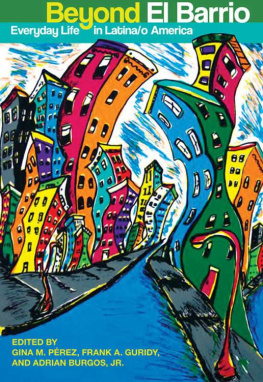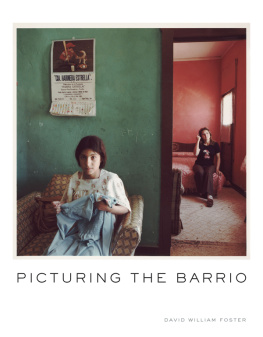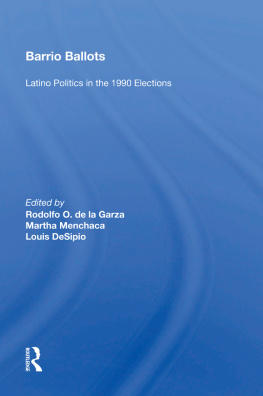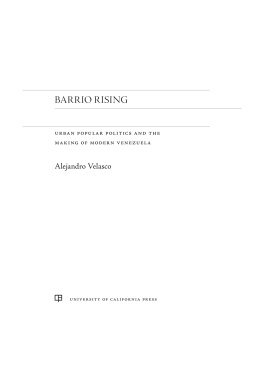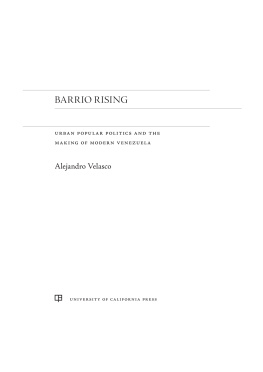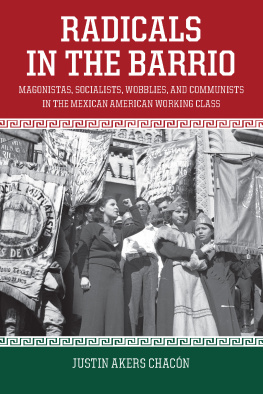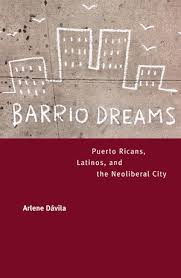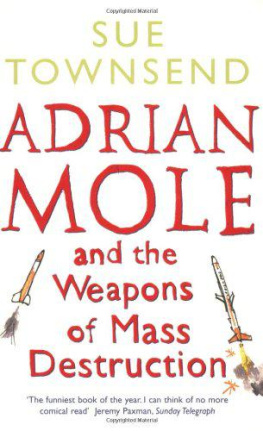Adrian Burgos - Beyond El Barrio
Here you can read online Adrian Burgos - Beyond El Barrio full text of the book (entire story) in english for free. Download pdf and epub, get meaning, cover and reviews about this ebook. year: 2010, publisher: NYU Press, genre: Politics. Description of the work, (preface) as well as reviews are available. Best literature library LitArk.com created for fans of good reading and offers a wide selection of genres:
Romance novel
Science fiction
Adventure
Detective
Science
History
Home and family
Prose
Art
Politics
Computer
Non-fiction
Religion
Business
Children
Humor
Choose a favorite category and find really read worthwhile books. Enjoy immersion in the world of imagination, feel the emotions of the characters or learn something new for yourself, make an fascinating discovery.
- Book:Beyond El Barrio
- Author:
- Publisher:NYU Press
- Genre:
- Year:2010
- Rating:5 / 5
- Favourites:Add to favourites
- Your mark:
- 100
- 1
- 2
- 3
- 4
- 5
Beyond El Barrio: summary, description and annotation
We offer to read an annotation, description, summary or preface (depends on what the author of the book "Beyond El Barrio" wrote himself). If you haven't found the necessary information about the book — write in the comments, we will try to find it.
Beyond El Barrio — read online for free the complete book (whole text) full work
Below is the text of the book, divided by pages. System saving the place of the last page read, allows you to conveniently read the book "Beyond El Barrio" online for free, without having to search again every time where you left off. Put a bookmark, and you can go to the page where you finished reading at any time.
Font size:
Interval:
Bookmark:
Thank you for buying this ebook, published by NYU Press.
Sign up for our e-newsletters to receive information about forthcoming books, special discounts, and more!
Sign Up!
A publisher of original scholarship since its founding in 1916, New York University Press Produces more than 100 new books each year, with a backlist of 3,000 titles in print. Working across the humanities and social sciences, NYU Press has award-winning lists in sociology, law, cultural and American studies, religion, American history, anthropology, politics, criminology, media and communication, literary studies, and psychology.
Beyond El Barrio
Everyday Life in Latina/o America
EDITED BY
Gina M. Prez,
Frank A. Guridy, and
Adrian Burgos, Jr.

NEW YORK UNIVERSITY PRESS
New York and London
www.nyupress.org
2010 by New York University
All rights reserved
References to Internet websites (URLs) were accurate at the time of writing.
Neither the author nor New York University Press is responsible for URLs
that may have expired or changed since the manuscript was prepared.
Library of Congress Cataloging-in-Publication Data
Beyond el barrio : everyday life in Latina/o America /
edited by Gina M. Prez, Frank A. Guridy, and Adrian Burgos, Jr.
p. cm.
Includes bibliographical references and index.
ISBN 9780814791288 (cloth : alk. paper) ISBN 9780814791295
(pbk. : alk. paper) ISBN 9780814768006 (e-book)
1. Hispanic AmericansSocial conditions. 2. Hispanic Americans
Social life and customs. 3. Hispanic American neighborhoods.
4. Community lifeUnited States. 5. City and town lifeUnited States.
I. Prez, Gina M., 1968 II. Guridy, Frank Andre. III. Burgos, Adrian, 1969
E184.S75B49 2010
973.0468dc22 2010020185
New York University Press books are printed on acid-free paper, and their binding materials are chosen for strength and durability. We strive to use environmentally responsible suppliers and materials to the greatest extent possible in publishing our books.
Manufactured in the United States of America
c 10 9 8 7 6 5 4 3 2 1
p 10 9 8 7 6 5 4 3 2 1
For Baron, Deborah, and Dolly
Gina M. Prez, Frank A. Guridy, and Adrian Burgos, Jr.
Mara Elena Cepeda
Dolores Ins Casillas
Lourdes Gutirrez Njera
Adrian Burgos, Jr., and Frank A. Guridy
Horacio N. Roque Ramrez
Deborah Paredez
Pablo Mitchell and Haley Pollack
Gina M. Prez
John McKiernan-Gonzlez
Cary Cordova
Lilia Fernndez
Ana Aparicio
Beyond El Barrio is a product of more than a decades worth of conversations among the co-editors, anthology contributors, as well as countless other colleagues and friends. The idea for the project emerged from discussions among the co-editors as we finished our dissertations in the early 2000s and were fortunate enough to receive fellowships and tenure track positions that allowed us the time, space, and financial and intellectual support to advance new scholarly interests. As a Research Associate at the Center for Puerto Rican Studies at Hunter College, City University of New York (Prez), a scholar-in-residence at the Schomburg Center for Research and Black Culture (Guridy), and an Assistant Professor at the University of Illinois (Burgos), we benefited from critical institutional support and the generosity and guidance of colleagues, mentors, and students. We are deeply grateful to all of our colleagues at the Centro, the Schomburg, and Illinois for nurturing and guiding us during those critical years as we transitioned from graduate school to our professional careers.
We are particularly grateful to all the anthology contributors. We thank them for the intellectual excitement they brought to this project, as well as their extraordinary patience and flexibility over the years. We have been particularly fortunate to have presented our workboth as a collective and individuallyin a variety of ways, and this anthology is certainly stronger as a result of the feedback generated from these presentations. We offer special thanks to Alex Vasquez and the Office of the Provost at Wheaton College, where we first presented our work in 2002. Without the extraordinary organizational skills of Mara Elena Cepeda, the first Beyond El Barrio symposium would never have happened. We are grateful for the financial and intellectual support she and Macalester College provided for Beyond El Barrio: Symposium for New Directions in Latina/o Studies, that took place in April 2005. A subsequent symposium at the University of Illinois in Spring 2007 provided another important moment for many of the contributors to present their work and to receive helpful feedback. Burgos would like to thank in particular the Dean of Liberal Arts and Sciences, Sarah Mangelsdorf, for much needed institutional and financial support, as well as then-graduate student Jennifer Guiliano as co-organizer of the symposium. Prez is grateful to Micaela di Leonardo, Jane Collins, and Brett Williams for organizing the Advanced Seminar New Landscapes of Inequality at the School for American Research in March 2006, where she benefited significantly from feedback on her work as well as larger conceptualizations for the anthology. We also offer our deepest thanks to John McKiernan-Gonzlez and Cary Cordova for coming to the rescue when we struggled to find an appropriate image for the anthologys book cover. The image Rhythmo del Pueblo, perfectly captures a new way of looking at the barrio. As Guridy noted in our conversations about the choice of it, the swaying buildings represent the disruption of the barrio and the road through it could convey our desire to move beyond it.
We are especially grateful for the generous feedback offered by the anonymous reviewers of the manuscript and are indebted to a number of senior scholars who have provided sustained intellectual and emotional support, encouragement, and wisdom over the years. Working with New York University Press has been an incredibly rewarding experience. Our thanks to Eric Zinner for first believing in the project and for countless conversations about it, as well as to Ciara McLaughlin, Despina Papazoglou Gimbel, and Robert Swanson for their guidance and patience at various stages in the process of completing the manuscript. We also offer heartfelt thanks to colleagues and friends at Oberlin College, the University of Texas, Austin and the University of Illinois for the support that made such a long-term project possible.
Finally, we are immeasurably indebted to our families who have offered us love, encouragement, and sustained intellectual engagement over the years. Our lives have been enriched by our children (Antonio, Pablo, Lucia, Zaya, Miranda, and Julia) who continue to inspire us to do what we can to build a better world. But none of this would have been possible without the indefatigable support, love, and patience of our partners, Baron, Deborah and Dolly. We humbly dedicate this book to them.
GINA M. PREZ, FRANK A. GURIDY,
AND ADRIAN BURGOS, JR.
In The Souls of Black Folk, W. E. B. Du Bois notes that a persistent, yet unasked question between him and the other world is How does it feel to be a problem? A similar question might be posed to contemporary Americas Latina/o populations, who recently have emerged simultaneously as a possible solution to Americas race problem, as well as a pernicious symbol of the nations enduring dilemma of citizenship, race, legality, and social membership. Thus the question Latinas/os face today is a similar one posed by Du Bois more than one hundred years ago, about not only the feelings of being defined as a problem, but also the strange experience of looking at oneself and ones communities through the eyes of others. For many Latinas/os, media images and popular cultural renderings of their families and communities mirror the anxieties as well as the expectations and hopes of mainstream America, rather than the complex realities characterizing Latina/o lives. Ironically, at a moment in which Latinas/os are increasingly visible in U.S. popular culture, media, public discourse, and community struggles, the material conditions and actual experiences of U.S. Latinas/os are largely unexplored, misunderstood, and frequently trapped in racialized stereotypes.
Next pageFont size:
Interval:
Bookmark:
Similar books «Beyond El Barrio»
Look at similar books to Beyond El Barrio. We have selected literature similar in name and meaning in the hope of providing readers with more options to find new, interesting, not yet read works.
Discussion, reviews of the book Beyond El Barrio and just readers' own opinions. Leave your comments, write what you think about the work, its meaning or the main characters. Specify what exactly you liked and what you didn't like, and why you think so.

